Cricket Australia faces D-Day on David Warner leadership ban reversal
David Warner’s leadership is officially back on Cricket Australia’s agenda as it risks losing the master blaster to a cashed-up T20 rival. Could Warner be a BBL skipper this summer?
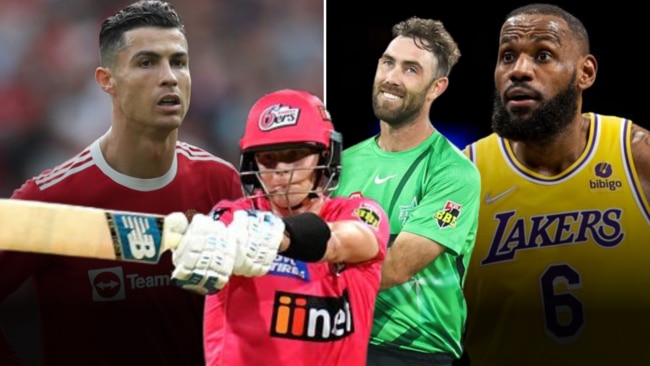
Cricket
Don't miss out on the headlines from Cricket. Followed categories will be added to My News.
David Warner’s leadership ban is set to be reviewed by the Cricket Australia board as pressure mounts on the game to try and convince the Test star to play the Big Bash.
It’s been four years since Warner was sensationally smashed with a lifetime ban from captaincy and vice-captaincy across all levels of Australian cricket for his role in the Sandpapergate scandal.
However, after consistently remaining tight-lipped over the sanction – even after Steve Smith returned to captain the Test team last summer – News Corp can reveal Cricket Australia’s board is now poised to officially broach the subject for the first time and discuss the merits of overturning Warner’s ban.
Watch Australia’s Tour of Sri Lanka. Every T20, ODI and Test Match Live & On-Demand on Kayo. New to Kayo? Try 14-Days Free Now >
The move comes as Channel 7 chief executive James Warburton called on Cricket Australia to “put their money where their mouth is” and prove that the Big Bash League is the game’s No.1 priority by pulling out all stops to get the Australian Test stars to play this January.
Despite the fact a mid-January ODI series against South Africa is set to be cancelled, fast bowling superstars Pat Cummins, Mitchell Starc and Josh Hazlewood are unlikely to feature in the BBL due to workload constraints – making Warner’s blockbuster presence even more vital as arguably the greatest T20 batsman Australia has produced.
As it stands, Warner is at long odds to play the BBL, but if a decision was made by the CA board to abolish the leadership ban it would give administrators a shot at persuading him to return to the league for the first time since 2011 and provide the competition with the biggest injection of star power it’s ever had.
Big Bash chief Alistair Dobson said he wasn’t in a position to comment on Cricket Australia board discussions, but made it abundantly clear the league wants Warner.
“It’s not one I can really comment on specifically. I know we’d love to have Dave in the BBL and if there are other things that need to happen to make that possible, that’s for others to resolve,” Dobson told News Corp.
“I’m aware of some historical considerations that exist in whether David wants to play in the BBL or not, and it’s not really for me to comment on other than we’d love to have him if he wants to play.
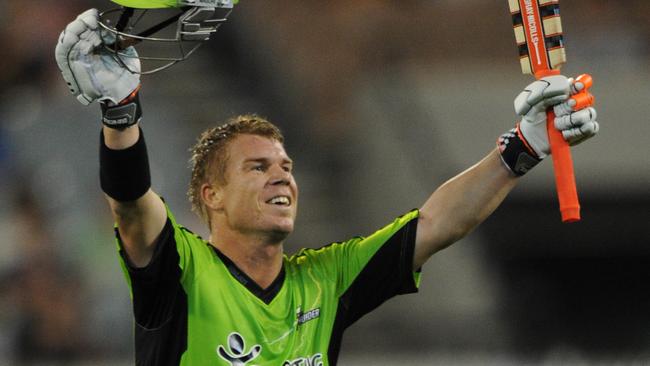
“David has been such a champion of Australian cricket and he’s a player that we’d love to have in the BBL.
“We know he’s got great history with the Sydney Thunder and we’d love all the Australian players to be playing in the BBL if they’re available. If there’s a way that David could find his way onto a BBL list I think it would be huge.”
As the heat rises from broadcasters ahead of the new TV rights deal, Channel 7 boss Warburton urged CA to not let a golden opportunity slip to flood the BBL with Australian talent for the first time in its history.
“The best thing Cricket Australia can do is say to South Africa, ‘Ok, don’t come’, and have all those Australian Test and white ball superstars’ play in the BBL, subject to workload,” said Warburton.
“They’ve got to put their money where their mouth is. Nick Hockley consistently says the Big Bash is his No.1 priority, but it hasn’t been, and it’s 60 per cent of the rights fee.”
The Australian Cricketers Association led by Todd Greenberg and Shane Watson have been vocal for some time in calling on CA administrators to overturn the Warner lifetime ban which threatens to hurt the game much more than Warner himself.
News Corp understands the ACA board will themselves discuss Warner’s leadership ban at its next directors meeting in mid-July.
Warner is set to be chased hard by the new cashed-up T20 league in the United Arab Emirates and over the years to come it would be a disaster if one of Australia’s highest profile stars was to be playing in a competing overseas league at the same time as the BBL.
Greenberg has strongly advocated the benefits of having Warner in a leadership role at BBL level, where he can impart his experience on the next generation.
IPL HEAVYWEIGHTS COULD BRING GOLD TO BBL
Indian Premier League heavyweights are poised to direct their rivers of gold towards the Big Bash League if privatisation is granted by Cricket Australia.
This is the prediction of Ravneet Gill, former chief executive of Deutsche Bank India and a chief IPL powerbroker on the advisory board for the Rajasthan Royals.
Shane Warne’s old club the Royals have already bought into leagues in the Caribbean, South Africa and the United Arab Emirates and News Corp understands Rajasthan have already made it clear they would climb into the BBL market at the drop of a hat if the door was opened to privatisation.
Private investment has given the new South African and UAE leagues, who are now directly competing against the BBL in January, the resources to offer between $500,000 and $700,000 for international superstars – money the Big Bash can’t match.
Gill said the BBL should be inspired by the power of the IPL not scared of it.
“I hope they can take a leaf out of what’s happened with the IPL, because the fundamental truth of it is Australia is such a massive cricketing superpower and there is no reason why the Big Bash should not be up there (as a top league),” Gill told News Corp.
“It just needs a bit of rejuvenation. I think the BBL needs a shot in the arm and needs to be reignited and my sense is privatisation could be the catalyst.
Watch Australia’s Tour of Sri Lanka. Every T20, ODI and Test Match Live & On-Demand on Kayo. New to Kayo? Try 14-Days Free Now >
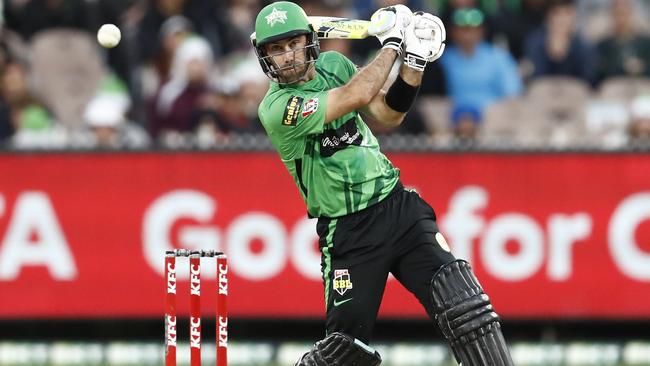
“If the BBL went down that path … I think there would be a lot of interest from Indian investors.”
To illustrate the potential of the Big Bash as a global commercial force, it’s understood the new cashed-up league in the UAE was interested in tapping into the Sydney Sixers’ brand as a way of demonstrating its credentials as an international league.
Broadcasters Channel 7 and Fox Cricket have endured major frustrations with the BBL such as it suffering from the competing interests of international scheduling, the narrow-mindedness of the states and the high performance unit of the Australian team.
Sources at both networks believe CA should at least consider privatisation.
While sympathetic to the challenges Cricket Australia has faced during Covid, Fox Cricket chief Matt Weiss says private investment could be a way of turning the BBL back into the show stopping entertainment product broadcasters want.
“I’d leave the financials to people who are more qualified than me but we’ve seen it work very successfully in the IPL which is the benchmark for T20 competition models,” said Weiss.
“Privatisation gives the IPL a lot of celebrity sizzle, financial support and entertainment.
“The other part which is underrated is the Rajasthan Royals for example have a team in Abu Dhabi and a side in the Caribbean Premier League … so they’re creating a worldwide 365 T20 franchise model.
“To have a business of that size involved in the BBL would seem a good thing. If that kind of model grows and brings extra star power and funds to the game and better players to the competitions than it can only be a good thing.”
Leading industry figures believe the fact IPL teams like Rajasthan are buying up teams around the globe could eventually lead to a scenario where superstar players are centrally contracted to the franchise and play for their IPL team in all the different leagues.
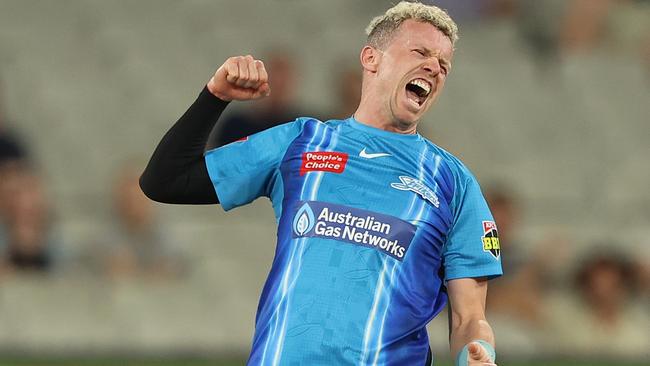
Critics of privatising the BBL point to fears it would undermine grassroots cricket and cost Cricket Australia control of the game.
Gill insists it is privatisation which has driven the IPL as an international benchmark for high performance and competition in T20 cricket and said the success of the Indian game as a whole should encourage Australia to go down a similar path.
“The money in India that has gone into grass roots levels, pensions for ex-players – I personally feel the BCCI has channelised a lot of the money they made from the IPL and streamlined that into the domestic and national set-up here,” Gill said.
“I don’t see a conflict between privatisation and the money not finding its way to the grass roots levels. A lot of the IPL teams have set up academies and high performance centres and gone into school level cricket too.”
COULD WORLD SPORT GIANTS SAVE THE BBL?
Global sporting brands Manchester United and the LA Lakers – or local heavyweights such as the Brisbane Broncos and Collingwood – could own Big Bash League teams if a push to revolutionise the ailing competition is successful.
Australian Cricketers’ Association president Shane Watson and former Test captain Michael Clarke have joined a chorus of cricketing leaders, including the founder of the Indian Premier League, to declare it’s time for Cricket Australia to privatise the BBL.
There is a widely-held belief that the BBL is being suffocated by the self-interest of the state cricket bodies which effectively dictate the running of the competition.
As a new TV deal approaches and the BBL braces for its January window to be ambushed by rival leagues in South Africa and the United Arab Emirates, the Big Bash has suddenly arrived at a crossroads.
In South Africa’s new privately run league, Jay Z’s Roc Nation entertainment agency has been hired to spearhead fan engagement, while in the UAE, the Glazer family that owns Manchester United has bought a team and will compete directly against BBL clubs for international stars, armed with a much bigger chequebook than Australian cricket can afford.
The Big Bash, with its bat flips and power surges, in comparison looks decidedly small fry, and that’s without mentioning the IPL’s latest eye-watering $10 billion broadcast deal, where a single match is now worth $21.75 million.

The BBL captured lightning in a bottle when it first hit the scene, but the snap and crackle has died out.
“It’s time to have the discussion around (privatising) the teams,” Clarke told News Corp.
IPL founder Lalit Modi agrees: “If private ownership came into (BBL) teams it will boom,” Modi said this week.
Cricket NSW board director Neil Maxwell is a firm believer that private investment is the shot in the arm the BBL needs to come alive again. To sign the game’s biggest stars and then maximise the windfalls of what that can bring.
“Any investment should be significant enough to allow solutions to key problems currently blocking the development of the BBL. Whether that investment be directly in the league or via the sale of teams, it should help shape the calendar for Australian players to participate and attract the best overseas players,” Maxwell said.
According to Maxwell, solving those two key problems would open up a world where iconic sporting outfits with armies of rusted on fans such as Manchester United, the Lakers, the IPL’s Rajasthan Royals or even locally, the Broncos or Collingwood could buy into a BBL club for the opportunity to climb aboard the international cricket express and take their brands around the globe.
“The BBL needs the stardust sizzle that comes with international sporting brands. Cricket has an international footprint that is of genuine interest to fans, corporates and investors,” Maxwell said.
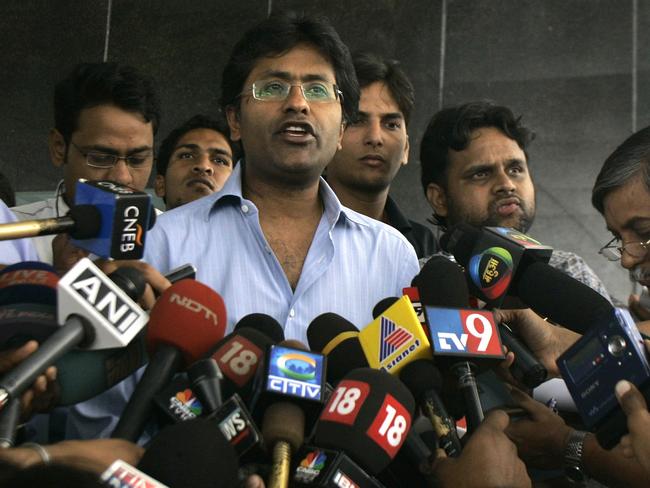
Critics fear for the consequences of selling your soul for the dollar, but Maxwell points to the All Blacks’ recent move into private equity as proof that selling a stake in the BBL or its clubs does not mean Cricket Australia has to surrender control of the game.
“You would have key parameters that protect the grassroots, or link the grassroots and also protect your crown jewels which are your Test matches and the Australian team. Remember, the majority of capital goes to the states whose role it is to promote and grow the game,” Maxwell told News Corp.
“How you contract the money is up to you. I think the competition needs an injection at league level to give it an autonomy to have its own administration separate to Cricket Australia and build a competition in the best interests of that competition. The states will shift their focus to participation numbers and supporting the growth of the game.
“We are fighting an international battle for players and credibility with two hands tied behind our backs.
“We’re one of the only mainstream boards not to have private investment. Someone has to ask, why?
“And I don’t think losing control is a strong enough argument because when Silver Lake (private equity) bought into the commercial rights of the All Blacks at up to eight per cent, that does not give you control of the game.
“But it gives the game an injection of hundreds of millions of dollars and you can use that to protect your assets and support the grassroots of the game.
“You’ve got to reinvest in your product and we haven’t done that successfully.
“We’ve got to send a message to the Australian public, to corporate Australia and broadcasters that this is a serious play. Everyone is saying the BBL needs more evolution. It needs a serious statement to the fans, corporate Australia and the players that it is undergoing a ‘step change’, not a ‘rule change’.”
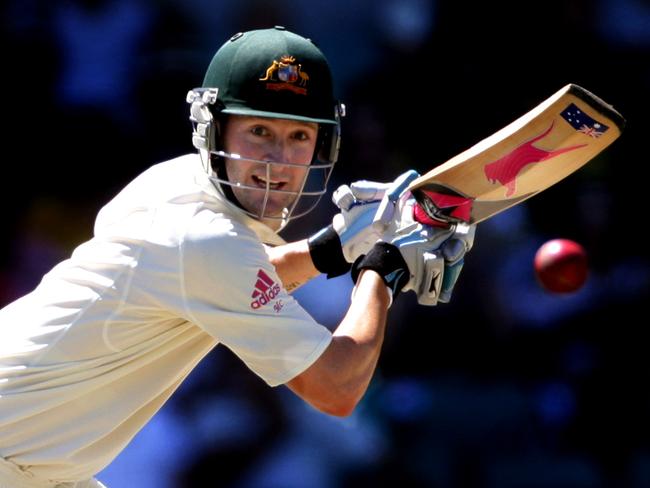
State interest killing BBL
In Maxwell’s view, the ideal model for the BBL would be one where the competition is given its own separate administration, run independently from Cricket Australia so the league can be freed from bureaucracy and mixed messaging.
The ECB has already taken the plunge – albeit without privatisation at this stage – and given its new Hundred competition an independent board not hamstrung by county interests and comprised of creative types at the forefront of new media and marketing.
It’s a widely-held view across the Australian game that the Big Bash is being crippled by an identity crisis it has never been able to overcome:
Is it an entertainment product — as Cricket Australia and broadcasters insist — or is it, as the states see it, a feeder league for the national team, and an extension of the domestic system?
Where Cricket Australia have always wanted to bring superstars such as Andre Russell to the Big Bash and boost the profile of the league, many clubs have demonstrated they’d rather invest that $200,000 into local state-based talent who aren’t disappearing again in six weeks.
In some cases, key cricket officials sit across their state and BBL teams. Players are signed on BBL lists and then conveniently bundled onto deals to also play longer-form cricket in the state.
A T20 version of the Sheffield Shield certainly isn’t going to bring broadcasters back to the table.
This internal conflict about what the BBL should be manifested itself in the farcical situation last summer where superstar Steve Smith was blocked from playing in the BBL.
Maxwell admits he struggles as a Cricket NSW board member with how it is ideal in the pursuit of building rivalries and tribalism for his own state as an example, to run two BBL teams.
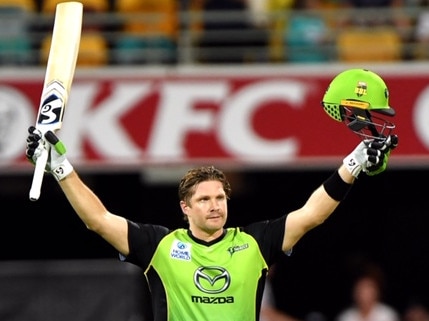
He insists the BBL needs to be set free to be run by independent thinkers.
“We need the BBL to be a special purpose vehicle that is run separately from Cricket Australia,” said Maxwell.
“Remove all the millstones and shackles that come with trying to do that through Cricket Australia.
“Give the BBL its own ability and thought space to be able to create and be an entertainment product.
“An independent entity can work within the key principles of Australian cricket but not be restrained by antiquated rules and thinking.”
The argument against
Former Channel 10 television executive David Barham was a key figure in the Big Bash’s early years and is not at all convinced about privatisation.
“I don’t think it’s a very good idea because you lose control. If you are running it properly you shouldn’t need to privatise. Privatisation to me seems to be for someone who has run out of ideas and can’t get the money in,” he said.
“What if you sell a franchise to someone who says I don’t care about youth I just want to win, where does that sit in your strategic plan?
“The BBL is a sport that was designed to encourage youth and families to get involved with the game.”
More Coverage
Originally published as Cricket Australia faces D-Day on David Warner leadership ban reversal




